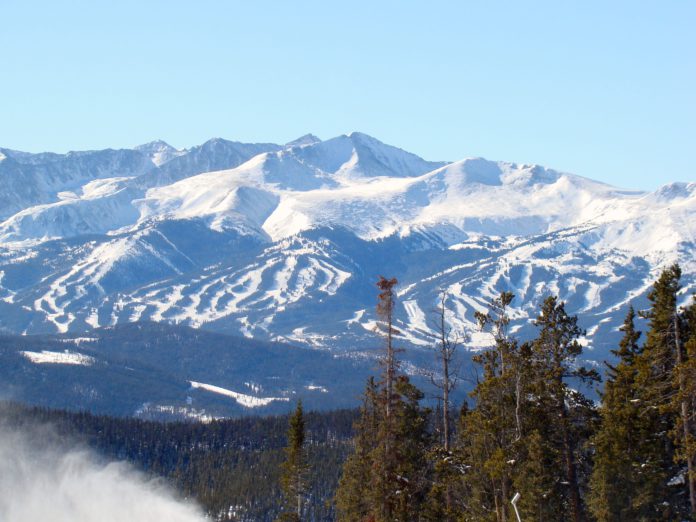
Case law in the 10th Circuit Court of Appeals seems to have already addressed the issue that waivers on lift tickets protect ski areas against claims of negligence resulting in injuries to skiers. But plaintiffs in two recent cases, one decided in January and the other still pending, disagree with the status quo. One attorney says continuous rulings in favor of ski areas by federal courts will encourage the defendants to keep cases in federal court, but the Colorado Supreme Court will likely have to take up the issue eventually.
The 10th Circuit decided Brigance v. Vail Summit Resorts in January, in which Teresa Brigance brought a suit against Keystone under the Colorado Ski Safety Act when she suffered a broken leg while trying to get off of what she later claimed was an unsafe ski lift. The U.S. District Court for the District of Colorado dismissed Brigance’s claims for negligence and negligence per se, concluding the waiver she signed prior to a ski lesson and the waiver printed on her lift ticket protected Vail against liability. The 10th Circuit upheld the ruling.
The court has yet to issue a ruling in Raup v. Vail Summit Resorts. Carolyn Raup brought suit against Vail Summit Resorts under the Colorado Premises Liability Act when she was injured in 2013 riding a chairlift at Fun Park in Breckenridge, claiming she had not signed a release of liability prior to participating in the park’s activities, and the release printed on the lift tickets was insufficient. The U.S. District Court for the District of Colorado dismissed Raup’s claims, ruling the lift ticket waiver sufficiently released Vail Summit Resorts from liability.
Chalat Hatten & Banker partner Evan Banker co-authored an amicus brief with Allison Hart on behalf of the Colorado Trial Lawyers Association for Raup v. Vail Summit Resorts, arguing the waiver language is void as against public policy because it runs contrary to the Ski Safety Act. The Colorado Premises Liability Act allows findings of negligence per se, the brief states, supported by the Passenger Tramway Safety Act, which the Ski Safety Act incorporates in its allowances for liability findings.
Banker said he believes a ski area operator can’t waive its duties under the Premises Liability Act because it is the legislature’s enactment of a public policy.
Banker said he believes the 10th Circuit’s eventual ruling in Raup v. Vail Summit Resorts will have implications for determining where future cases get filed. “If they rule in favor of Vail Resorts, you’ll see a lot more litigation moved to the federal courts, because it’ll be clear at that point that the federal courts are going to dismiss any claim against ski area operators on the waiver,” he said. “And you’ll probably see plaintiffs trying to keep their cases in state court.”
Though the 10th Circuit’s decision in Brigance v. Vail Summit Resorts follows previous rulings upholding the validity of releases protecting against negligence claims, a split exists between the federal and state courts. Banker explained Colorado does not have appellate case law on waivers in ski cases or those under the Premises Liability Act.
“The state courts have not taken this issue on head-on,” he said. “And I think what you’ll see is probably plaintiffs in cases where this is an issue will probably all be filing in state court, and eventually the state courts will have to take it on.”
Banker’s amicus brief cited Anderson v. Vail Corporation, in which the defendant admitted its liability waiver did not apply to its statutory obligations. But in deciding the case, the Colorado Court of Appeals did not reach the issue of whether Vail’s exculpatory agreement was clear and unambiguous, only agreeing with the plaintiff on the issue that failing to properly mark the ski area’s boundaries meant the defendant was not released from liability by the exculpatory agreement as a result.
Colorado is not the only state to address liability for ski areas within its statutes.
Utah’s Safe Skier Act protects ski areas from liability when skiers get injured so the area operators can get lower insurance rates and stay in business. But the law does hold the operators accountable for injuries caused by their own negligence.
Banker’s brief emphasized the importance of the Colorado Supreme Court deciding the issue of exculpatory agreements eventually, and agreed that waivers printed on tickets should not protect ski area operators from liability.
“Can a Colorado ski area, when acting as a regulated tramway operator, nullify its statutory safety duties, and defeat these long-standing statutory claims of all lift passengers merely by placing exculpatory language in 5-point font on the backside of the lift ticket?” read the brief. “No. The ski area operator may not abrogate its duties by unsigned tiny print exculpatory language in a lift ticket … This case has implications for the safety of the millions of skiers and aerial tramway passengers who visit Colorado ski areas every year because the industry asks here for the right to immunize itself merely by printing exculpatory language on the back of every ticket.”
— Julia Cardi

